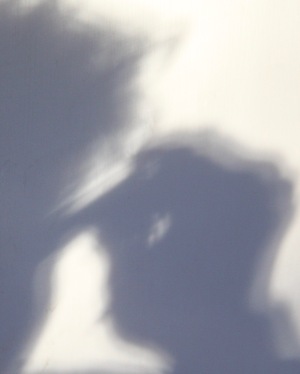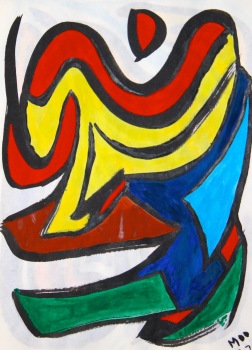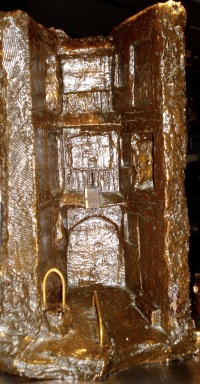
Last Dance
Fast Fiction Friday
The vocalist has rhythm but, unlike her audience, she doesn’t have cancer. She has come here tonight with her band to the hospice to entertain those who do. The band donates their time. They don’t do this for money. Nobody does.
The vocalist looks round the almost empty room. She has been here before and knows that when she starts to sing, many more patients, attracted by the music, will come drifting in. She introduces the trio that accompanies her to the few who have arrived and the evening’s entertainment begins.
The music circulates round the hospice, and the inmates, secluded in their rooms, tap out the rhythm of the first song. They leave their rooms and descend the stairs. The low lights give the patients courage and they trickle shyly into the dining room, now turned into a dance floor. As they enter, they see some of the bravest patients out on the dance floor, moving in time to the music. The late-comers stand straighter, adjust their headscarves, lean less on their sticks, and forget for a moment their suffering. They settle in chairs towards the back of the room and leave the front rows empty. Then they exchange glances and nods of encouragement. Many of the men stand at the rear, leaning on the chair backs of the women who are seated in front of them.
Some dance, but not everyone does. Some join in the chorus, humming or mouthing the words. One takes a pair of plastic spoons from his pocket and follows the rhythm. Two ladies hold hands and encourage each other onto the dance floor where they join the growing numbers who are moving around. Those who are not yet brave enough to step out, clap loudly and one or two cheer.
The music volume increases and laughter and merriment grow. More and more patients join the dancers on the floor. The lights are lowered even further and people who scarcely knew each other a week or two ago now dance in close friendship.
As they move beneath dim lights, the dancers half-close their eyes and enter a dreamland of sound and music. Here the women’s hair grows lush and long again. The men stand straighter, throw away their sticks, and rely on their partners to keep them upright. One man touches the place where his partner’s amputated breast should be. She recoils immediately, but he holds her close, whispers in her ear, brushes her cheek with his lips, and gradually she relaxes. As the evening comes to an end and the lights dim further, the dancers move closer together dreaming on and on in time to the music.
When the vocalist announces that this will be the last dance, the music stops for a moment and the hospice’s oldest inhabitant, an elderly lady, cancer-stricken, hauls herself to her feet and walks to the center of the dance floor. When she gets there, she holds out her hands before her and nods at the vocalist. The other dancers make space for her and the last dance begins.
This elderly lady dances alone, clinging to the empty air as if she were dancing with a well-remembered partner. A muted spotlight highlights her as she moves. It could be midnight, in some sacred grove where shadows shift, and moonlight makes its own sweet music, and her, the spirit of the wood, moving in tune to a rhythm that promises, in spite of everything, joy and ever-lasting love.









